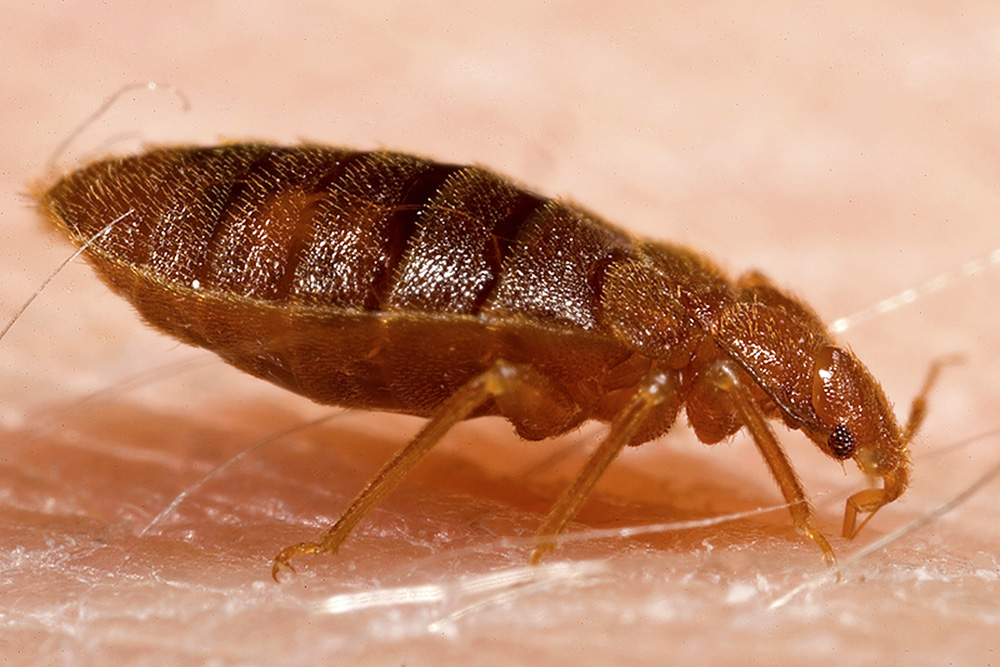Expert Kings Bug Control Cincinnati: Your Trusted Pest control experts
Kinds Of Pest Control: Which Technique Is Right for Your Invasion?
When encountered with a parasite infestation, the choice of a suitable approach for pest control is vital in successfully handling the scenario. From chemical treatments to biological options, there exists a series of approaches that can be utilized to resolve various types of insects. Each method features its own set of factors to consider and benefits, making the decision-making process a nuanced one. Comprehending the subtleties of each technique and reviewing their compatibility with the certain pest infestation handy is vital for accomplishing long-term success in bug monitoring. By discovering the various sorts of parasite control approaches offered, people can make educated decisions tailored to their distinct circumstances, making certain a more effective and sustainable outcome in bug obliteration.
Chemical Insect Control
Chemical pest control involves making use of synthetic or naturally derived chemicals to handle and remove pest populations efficiently. This method is frequently made use of in agriculture, forestry, and property setups to combat a large range of parasites, including rats, weeds, and insects. Making use of chemical pesticides can provide fast and targeted solutions to pest infestations, making it a popular choice for many individuals and companies.
Among the key benefits of chemical pest control is its ability to promptly remove bugs, decreasing the threat of damage to crops, building, and human health. By making use of specific chemicals that target particular bugs, this method can successfully manage infestations while lessening harm to advantageous microorganisms and the atmosphere when applied correctly.
However, the use of chemical insect control likewise elevates issues regarding possible negative impacts on non-target types, water sources, and human wellness. It is important to adhere to safety and security guidelines, apply chemicals responsibly, and consider alternative insect control methods to reduce these risks and make sure sustainable bug management techniques.
Organic Parasite Control
Organic pest control, also known as biocontrol, uses living microorganisms to manage and minimize pest populaces naturally. By using the bug's natural killers or microorganisms, organic parasite control uses a environmentally friendly and lasting service to pest administration.

Mechanical Pest Control
Making use of hands-on and physical approaches to take care of pest populations, mechanical pest control offers an alternate technique that does not count on making use of living microorganisms or artificial chemicals. This technique involves the use of barriers, traps, or other tools to literally prevent or remove parasites. By blocking bug entrance points or establishing traps to catch them, mechanical pest control can successfully decrease invasions without presenting chemicals right into the atmosphere.
One typical instance of mechanical parasite control is the usage of mesh screens on windows and doors to avoid bugs from going into structures. This straightforward yet effective method acts as a physical obstacle, maintaining parasites out while permitting proper air flow. Additionally, gadgets like mousetraps, fly swatters, find and ultrasonic repellents fall under the mechanical pest control group.
While mechanical insect control approaches can be labor-intensive and need normal monitoring and upkeep, they offer a ecologically pleasant and lasting option for managing parasite infestations. By integrating different mechanical techniques, homeowner can develop a comprehensive parasite control strategy that reduces reliance on chemical pesticides.
Physical Pest Control

Some typical physical bug control approaches include using obstacles such as displays or nets to avoid pest access, catches to capture and eliminate bugs, and hand-picking to literally remove pests from plants or frameworks. Furthermore, techniques like warmth treatments can be used to control bugs like bed insects by raising the temperature level to degrees that are lethal to the bugs.
Physical insect control is particularly beneficial in incorporated pest monitoring (IPM) techniques, where numerous pest control approaches are integrated for efficient pest monitoring while lessening using chemicals. By making use of physical bug control strategies, individuals can efficiently resolve insect problems with very little environmental impact.
Integrated Insect Monitoring
When implementing physical pest control techniques as component of insect administration methods, Integrated Parasite Administration (IPM) becomes an extensive method that leverages various methods to efficiently regulate pest populaces. IPM concentrates on long-term avoidance of bugs through a mix of biological, social, physical, and chemical devices tailored to specific pest concerns. By incorporating multiple control strategies, IPM aims to lessen the risks connected with insects while also minimizing dependence on chemical services.
One trick facet of IPM is the focus on monitoring and examining pest populaces to figure right here out the most appropriate control methods. This proactive strategy permits early treatment and targeted techniques, causing a lot more effective pest administration. Additionally, IPM promotes ecologically friendly methods by prioritizing non-chemical control techniques and only using pesticides as a last resource.
Conclusion

By making use of the pest's all-natural predators or microorganisms, organic parasite control offers a eco pleasant and lasting service to pest administration. - Kings pest control Cincinnati Ohio
Using physical and manual techniques to handle insect populaces, mechanical pest control supplies an alternative strategy that does not rely on the use of living microorganisms or artificial my response chemicals.An efficient approach to handling bug populations without relying on chemical or biological approaches includes the usage of physical pest control methods.When carrying out physical insect control techniques as part of insect monitoring strategies, Integrated Pest Monitoring (IPM) arises as a comprehensive approach that leverages different methods to effectively regulate pest populations. Chemical pest control involves the usage of chemicals, organic parasite control uses all-natural predators, mechanical pest control involves physical barriers, physical pest control includes capturing or eliminating bugs, and incorporated parasite monitoring integrates several techniques for an alternative approach to pest control.